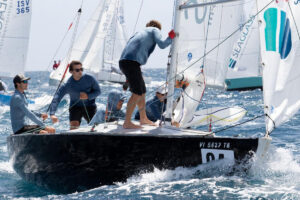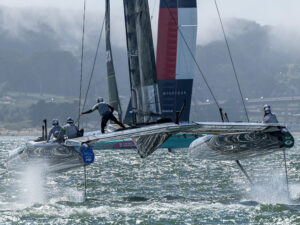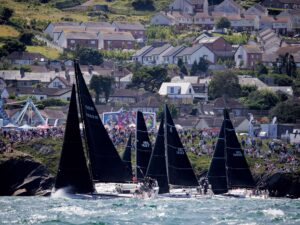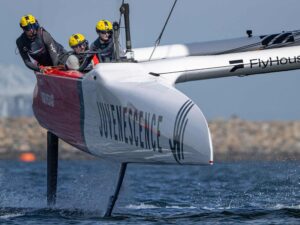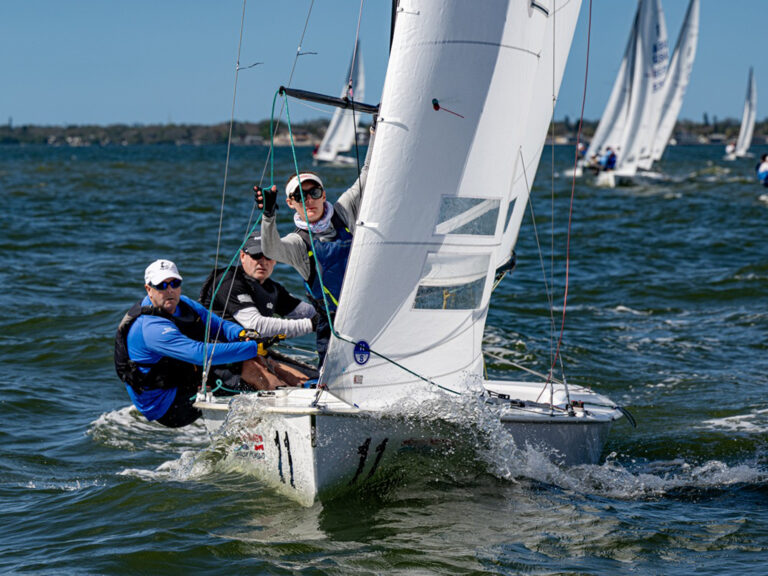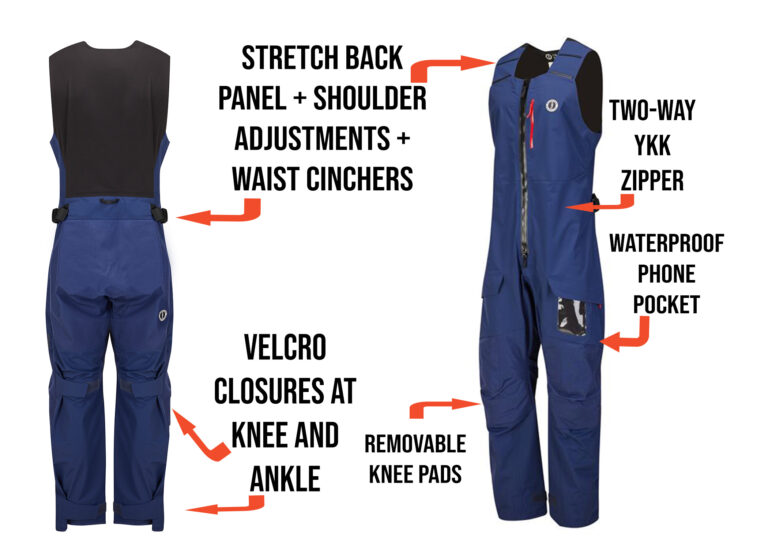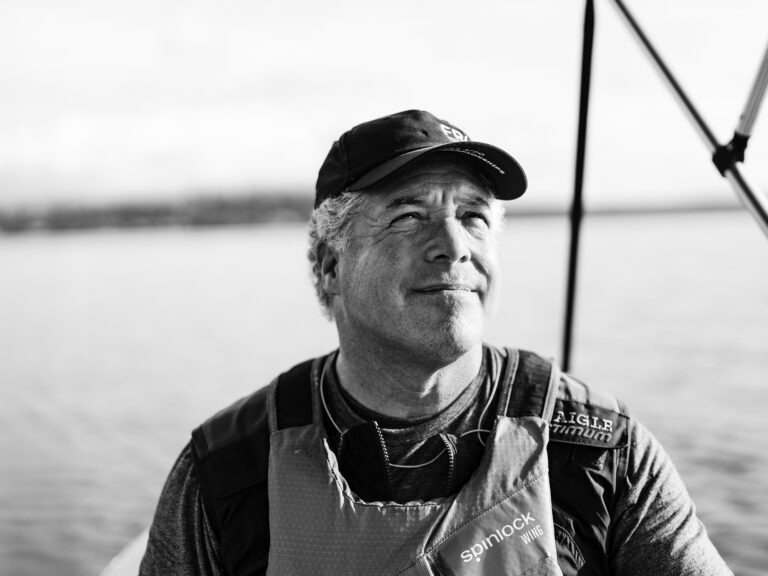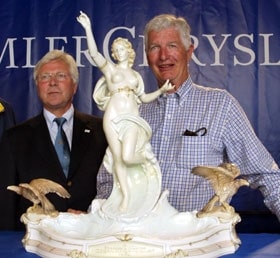
With wins in the Fastnet, Bermuda, and Transatlantic races, Dr. Skip Sheldon, 73, is on an ocean-racing roll. It’s all about experience, says the self-described “East Coast” person who grew up racing Stars on Long Island and both one-designs and offshore boats while teaching pathology at McGill University in Montreal. We spoke with Sheldon just before he went to race his Reichel-Pugh 66 Zaraffa in the Med to tune up for December’s Rolex Sydney-Hobart Race.Where did you first sail?My mother took the three of us out to Amagansett, Long Island, in 1937. I was there in 38 when we had the hurricane. All of my summers until I went to college were spent sailing on Gardiners Bay. I crewed in a Star in ’47 with Curtis Jones, and we got as far as the Atlantic Coast Championships after winning the districts.To who else did you apprentice?I apprenticed to Roger Hewson who built the Sabres. He was the Sabre Scow inventor and owned the Sabre Boat Co. He left Montreal but I crewed for him for 2 or 3 seasons. I also crewed in the Dragons and went to the Gold Cup. Now the Dragons are back again. I was really disappointed when the Dragons were dumped from the Olympics. I bought the second Soling in Canada, and I thought, “This is a horrible, perfectly awful boat.” And the kid who crewed for me went on to win the world championships, Peter Hall.You’ve been an active competitor all your life?No, there were 17 years when I was so busy with either the department in the medical school or working for the ski association in Canada that I never stepped on a boat, but at first, when I got established and the lab was set and everything was rolling, I bought a Hood 36 centerboard sloop and raced it on Long Island Sound. Six of us would fly down–Peter Hall was an apprentice then–and there were a whole group of fellows who would go down to do Off Soundings, or do the Gearbuster race.You’ve had plenty of learning experiences, no doubt. Which stands out?I had the smallest boat in the ’67 Annapolis-Newport when eight boats were wrecked, and we were last to finish after heaving to for 15 hours. I was the only guy who wasn’t seasick. We had to change the jib, and nobody else could move, so I had one guy strapped to the wheel and I did the headsail change. The next year we prepped for the Bermuda Race, but the night before the start we decided we weren’t ready and went cruising in Maine instead. You need to have people on board who know themselves well enough to know what they can and cannot do.You raced your Tripp 55, Aurora, then went cruising. What brought you back to racing?I told my wife I wanted to give it one more crack, and she said, “OK, get it out of your system.” To my horror, nobody wanted to go overnight on a boat. The traditions of ocean racing are part of a culture that’s very small and not fashionable. You do it because it’s one of the few real adventures left.What’s it like with professionals in your crew now?The only pros we had in the ’50s were guys in brown suits with black visors who smoked cigars and polished the brass. With Aurora, we always had one fellow paid to look after the boat. Now I sail with half professionals, but some guys don’t want to be paid. When I offered to pay one, he said, “No, I jealously guard my amateur status.” Do you find it difficult to screen crewmembers?You have to live through recruitment. You have to be very careful that you weed out the s–t stirrers. You need people who are loyal because you’re responsible for their lives on board. I don’t want to be responsible for people who aren’t careful and competent. Do you like the development side as much as the races?It’s a spectrum. If you’re not prepared, you probably shouldn’t go. If you have a fireplace where you burn real logs, you’d better have a fire extinguisher. You can’t go ocean racing with an inshore program, inshore people, inshore mindset, inshore equipment. Do you want to win all the great races?That’s what we seem to be sneaking up on, but I don’t want to say that in public. Any plans for the Transpac?Downwind for seven days on boats built to go downwind is a different game. Why would I try a downwind sport when I’ve got a real good all-round boat? When you’re racing, what jobs do you do on the boat?Backup navigator, cook, ship’s doctor, and second guess everybody all the time. I steer at the starts and finishes, and if it looks like fun on deck, but the other guys really like to steer, and they’re probably a lot better than I am, except in light air. Are you looking forward to the Sydney-Hobart?There are something like 20 Sydney-Hobart races in the crew roster we have for this race. Every one of them says you’ve got to expect the worst and hope for the best, but be sure that your storm trysail is a serious sail because you’ll use it.

